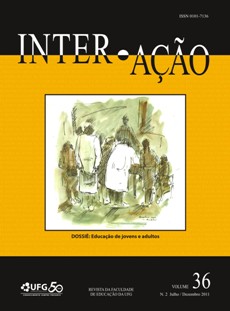LIMITES SOCIAIS DAS POLÍTICAS DE EDUCAÇÃO: EQUIDADE, MOBILIDADE E ESTRATIFICAÇÃO SOCIAL
DOI :
https://doi.org/10.5216/ia.v36i2.16722Mots-clés :
Sociologia da Educação, Ensino Superior, Mobilidade Social, Classes SociaisRésumé
A esperança moderna de equalização de oportunidades por meio da democratização de sistemas públicos de ensino encontra limites sociais para efetivar-se. A tese de Hirsch (1979) aplica-se ao caso, especialmente em períodos de democratização. A expansão do acesso às credenciais educacionais tende a deslocar sua desigualdade para estratos horizontais (COLLINS, 1979). À medida que expande numericamente, os efeitos sociais da educação tendem a perder sua qualidade e seu poder social. Antes, um mecanismo moderno de mobilidade ascendente, com baixa dependência da origem social, a educação perde características de equidade sem superar mecanismos reprodutores da desigualdade. A análise crítica deste modelo de expansão de matrículas aponta para a reavaliação de seus objetivos e mecanismos de construção democrática.Téléchargements
Téléchargements
Publié-e
Comment citer
Numéro
Rubrique
Licence
A Inter-Ação utiliza como base para transferência de direitos a licença Creative Commons Attribution 4.0 para periódicos de acesso aberto (Open Archives Iniciative - OAI). Por acesso aberto entende-se a disponibilização gratuita na Internet, para que os usuários possam ler, baixar, copiar, distribuir, imprimir, pesquisar ou referenciar o texto integral dos documentos, processá-los para indexação, utilizá-los como dados de entrada de programas para softwares, ou usá-los para qualquer outro propósito legal, sem barreira financeira, legal ou técnica.
Autores que publicam neste periódico concordam com os seguintes termos:
1) Autores mantém os direitos autorais e concedem à revista o direito de primeira publicação, com o trabalho simultaneamente licenciado sob a Licença Creative Commons Attribution que permite o compartilhamento do trabalho com reconhecimento da autoria e publicação inicial nesta revista.
2) Autores têm autorização para assumir contratos adicionais separadamente, para distribuição não-exclusiva da versão do trabalho publicada nesta revista (ex.: publicar em repositório institucional ou como capítulo de livro), com reconhecimento de autoria e publicação inicial nesta revista.
3) Autores têm permissão e são estimulados a publicar e distribuir seu trabalho online (ex.: em repositórios institucionais ou na sua página pessoal) a qualquer ponto antes ou durante o processo editorial, já que isso pode gerar alterações produtivas, bem como aumentar o impacto e a citação do trabalho publicado.















